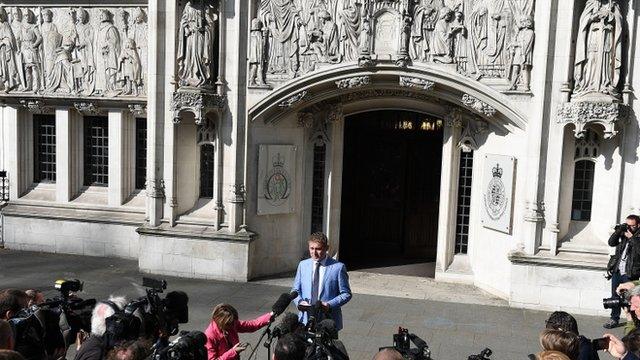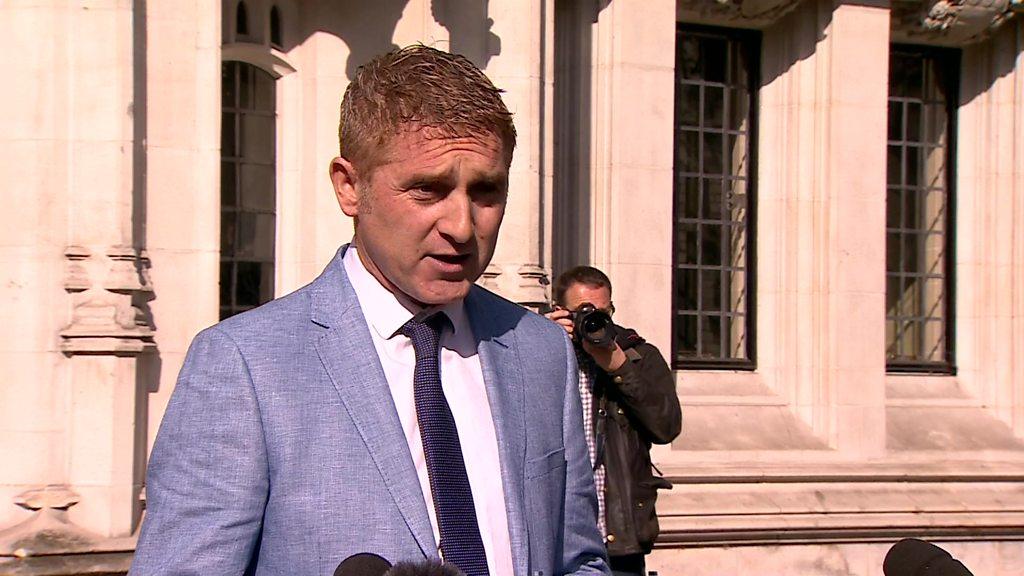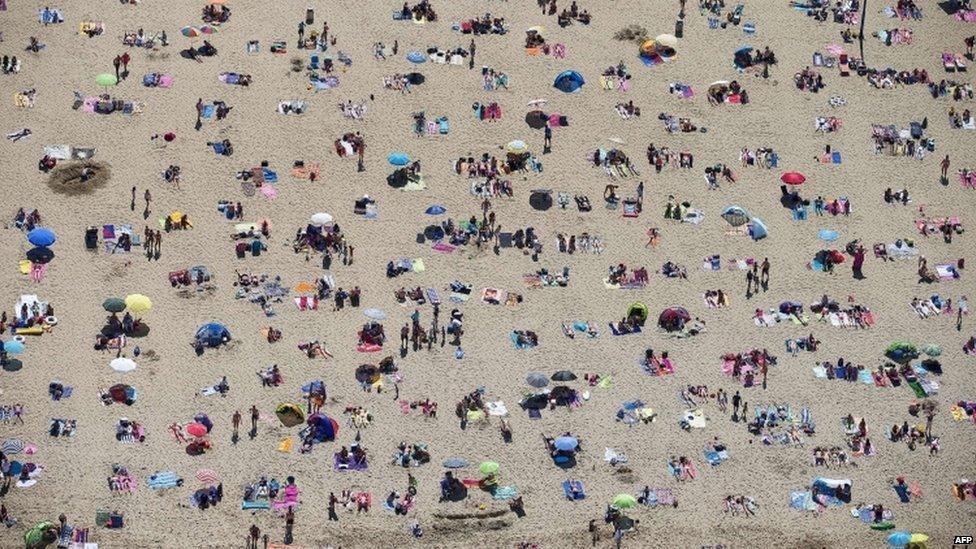Term-time holiday dad loses court battle over school fine
- Published
- comments
Jon Platt had refused to pay a fine for taking his daughter out of school
A father has lost his legal challenge against a fine for taking his daughter out of primary school on an unauthorised holiday during term time.
The Supreme Court ruled against Jon Platt, who had won earlier legal battles against a £120 fine in a case brought by the Isle of Wight council.
Mr Platt said the decision, over a trip to Florida, meant the "state was taking the rights away from parents".
But Prime Minister Theresa May said it was for schools to decide on absences.
"It's right that the individual head teacher has that flexibility to make that decision," she said.
The judges ruled that the interpretation of "regular" attendance, at the centre of this long-running dispute, should be decided by the school.
The decision makes clear that parents in England can be fined if their children miss school without the agreement of the head teacher, except for reasons such as illness or family bereavement.
Holiday costs
But Mr Platt said parents would find it "utterly shocking" that they needed the "permission of the state" to decide on school attendance.
"You are not the final arbiter of what's right for your child."

There have been warnings this could further widen the gap in holiday prices
In her judgement, Lady Hale said it would cause unacceptable disruption if parents were able to withdraw children whenever they wanted.
"Unauthorised absences have a disruptive effect, not only on the education of the individual child, but also on the work of other pupils, and of their teachers," she said.
Allowing parents to decide when they took their children away would be a "slap in the face" to parents who kept the rules, said Lady Hale.
The case has raised questions about the high cost of travel during school holidays and Andrew Shelton from the Cheapflights travel website said the tough message on term-time absences could "widen the price divide between term-time and school holiday even further".
Mr Shelton said that at present there could be a 50% difference in prices.
'Much-needed clarity'
The Supreme Court ruling, which upheld the appeal by the Isle of Wight council and the Department for Education, means that the case will be returned to the magistrates' court, where Mr Platt says he will continue to plead not guilty.
The court found that the penalty notice had been properly issued and without a reasonable cause for the absence, Mr Platt could have expected to face a fine.

Mr Platt claims the ruling takes rights away from parents
The Isle of Wight council backed the decision as providing "much-needed clarity about what constitutes regular attendance at school".
The ruling rejects Mr Platt's argument that despite missing a week of school for a holiday, his daughter had regularly attended over the course of the year, with an attendance rate of over 92%.
The judges did not accept this interpretation and said parents would have to comply with the rules set by schools and education authorities.
The row centred on a week's holiday to Disney World in the United States two years ago, when Mr Platt's daughter was taken out of primary school without the head teacher's permission.
Mr Platt, originally from Northern Ireland, was fined £60 which with non-payment was increased to £120 - after which he faced prosecution for failing to ensure his daughter's regular attendance at school on the Isle of Wight.

Truancy prosecutions in England in 2015
Proceeded against: 19,920 (16,430 in 2014)
Found guilty: 14,890 (12,479 in 2014)
Fined: 11,493, average fine £176.
Immediate custody: 8
Suspended sentence: 111
Community sentence: 553
Conditional discharge: 2,280
Absolute discharge: 306
Source: PA

Magistrates had accepted Mr Platt's argument that "regular attendance" should consider attendance across the whole year - and decided that he had no case to answer.
When this was put to appeal, the High Court agreed that magistrates had been entitled to consider school attendance outside of the term-time absence.
But the Supreme Court has now overturned these earlier decisions.
End of uncertainty
Head teachers' leader Malcolm Trobe welcomed the court's decision, saying that it ended a "period of uncertainty" over term-time holidays.
But Liberal Democrat education spokesman, John Pugh, said the ruling was "disappointing" and called for more "flexibility" for families.
"Many employees have no choice when to take their holidays... Others simply cannot afford to go on holiday at peak times, when the cost of holidays goes through the roof," he said.
A Department for Education spokeswoman said: "We are pleased the Supreme Court unanimously agreed with our position - that no child should be taken out of school without good reason.
"As before, head teachers have the ability to decide when exceptional circumstances allow for a child to be absent but today's ruling removes the uncertainty for schools and local authorities that was created by the previous judgment.
"The evidence shows every extra day of school missed can affect a pupil's chances of achieving good GCSEs, which has a lasting effect on their life chances."
- Published6 April 2017

- Published6 April 2017

- Published6 April 2017

- Published6 April 2017
